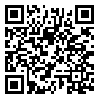Volume 16, Issue 1 (January & February 2025)
BCN 2025, 16(1): 131-142 |
Back to browse issues page
Download citation:
BibTeX | RIS | EndNote | Medlars | ProCite | Reference Manager | RefWorks
Send citation to:



BibTeX | RIS | EndNote | Medlars | ProCite | Reference Manager | RefWorks
Send citation to:
Shojaeddin A, Jafarian Namini F, Razzaghi Z, Abbass A, Ghorbani N. Efficacy of Intensive Short-term Dynamic Psychotherapy, Laser Acupuncture, and the Combination in Major Depression. BCN 2025; 16 (1) :131-142
URL: http://bcn.iums.ac.ir/article-1-2827-en.html
URL: http://bcn.iums.ac.ir/article-1-2827-en.html
1- Laser Application in Medical Science Research Center, Shahid Beheshti University of Medical Science, Tehran, Iran.
2- Department of Psychology, Faculty of Psychology and Education, University of Tehran, Tehran, Iran.
3- Department of Psychiatry, Centre for Emotion and Health, Dalhousie University, Halifax, Canada.
2- Department of Psychology, Faculty of Psychology and Education, University of Tehran, Tehran, Iran.
3- Department of Psychiatry, Centre for Emotion and Health, Dalhousie University, Halifax, Canada.
Abstract:
Introduction: While major depression has been treated with laser acupuncture (LA) and intensive short-term dynamic psychotherapy (ISTDP), the relative efficacy of these two methods and their combination is unclear. ISTDP is a form of dynamic psychotherapy that enables the experience and processing of blocked complex feelings, while LA is based on the opening of blocked energy meridians. The present study aimed to compare the effectiveness of LA and ISTDP and their combination in treating major depression.
Methods: A randomized controlled trial was carried out with 45 depressed patients on three equal arms (15 patients in each group): Group I) LA, group II) ISTDP, and group III) combined LA and ISTDP. The participants were evaluated at six time points using the Hamilton rating depression scale (HDRS), structured clinical interview for structured clinical interview for DSM (SCID), and symptom checklist-90 (SCL90), including baseline, session 8, session 12, 1-month follow-up, 2-month follow-up, and 3- month follow-up.
Results: HDRS and SCID ratings showed within-group reductions in SCL90 and HDRS scores in the three groups over time. At one of the follow-up times, combined LA+ISTDP showed a greater reduction than either individual treatment on the SCL-90 depression subscale but not on HDRS or SCID.
Conclusion: Based on releasing blocked energies, the results of this study indicate that LA and ISTDP are effective in treating major depression. The combination of the two methods may be more effective in reducing depression symptoms.
Methods: A randomized controlled trial was carried out with 45 depressed patients on three equal arms (15 patients in each group): Group I) LA, group II) ISTDP, and group III) combined LA and ISTDP. The participants were evaluated at six time points using the Hamilton rating depression scale (HDRS), structured clinical interview for structured clinical interview for DSM (SCID), and symptom checklist-90 (SCL90), including baseline, session 8, session 12, 1-month follow-up, 2-month follow-up, and 3- month follow-up.
Results: HDRS and SCID ratings showed within-group reductions in SCL90 and HDRS scores in the three groups over time. At one of the follow-up times, combined LA+ISTDP showed a greater reduction than either individual treatment on the SCL-90 depression subscale but not on HDRS or SCID.
Conclusion: Based on releasing blocked energies, the results of this study indicate that LA and ISTDP are effective in treating major depression. The combination of the two methods may be more effective in reducing depression symptoms.
Keywords: Laser acupuncture (LA), Intensive short-term dynamic psychotherapy (ISTDP), Depression, Iran
Type of Study: Original |
Subject:
Behavioral Neuroscience
Received: 2023/11/19 | Accepted: 2024/04/15 | Published: 2025/01/1
Received: 2023/11/19 | Accepted: 2024/04/15 | Published: 2025/01/1
Send email to the article author
| Rights and permissions | |
 |
This work is licensed under a Creative Commons Attribution-NonCommercial 4.0 International License. |








